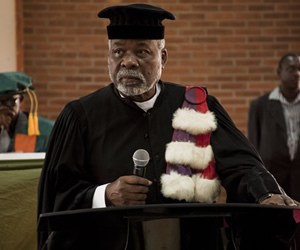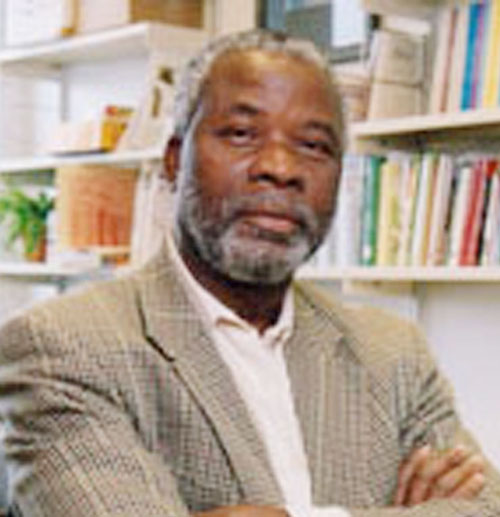Abiola Irele’s collection of essays, first published in , has established itself as a classic study of modern African literature, its oral traditions, and its cultural. AT age 70, Abiola Irele’s presence in the world of African letters and, more generally, in African intellectual circles, is a commanding, venerable one. As the . The African Literature Association regrets to announce the death of Professor Francis Abiola Irele, 17th president of the association (), and.
| Author: | Morisar Kajizilkree |
| Country: | Nicaragua |
| Language: | English (Spanish) |
| Genre: | Literature |
| Published (Last): | 16 July 2024 |
| Pages: | 481 |
| PDF File Size: | 4.41 Mb |
| ePub File Size: | 13.35 Mb |
| ISBN: | 165-4-13288-925-6 |
| Downloads: | 55908 |
| Price: | Free* [*Free Regsitration Required] |
| Uploader: | Samukasa |
Today, Irele’s ideas on this topic, as expounded in several essays and in parts of the book The African Imagination: His contributions to the world literature as a critic rank among the most seminal. In his best work, the sentence, as a building block of the essay, achieves a communication of ideas that is both luminously logical and beautiful.

Needless to say, updating the first aspect relating to the contents of his intellectual production and professional interests is a much more straightforward affair and for this reason, it is that issue that I will first address in this short commemorative essay. Disciplinary, Temporal, Irelee and Geographical Scope The range of his work is evident in its scope across philosophy, literary criticism, music criticism and cultural criticism, as well as theoretical expositions in relation to these fields.
Art is the imaginative restitution of the fundamental network of relationships which exist between the various manifestations of this cosmic energy. The Nigerian civil war had just broken out.
But I am not made speechless by the shock of the abioa. Eshu slept in a nut- At last he could stretch himself! Born May 22,in Ora, he moved to Enugu very early in his life. Can you tell us more about it? But this is precisely the point of postmodernism: These are, respectively, the very contents and substance of Irele’s work, and the epistemological rupture that seemed to have emerged in his work when that essay was written. Clark to reconstruct and revive it, an effort that saw Irele becoming, fromeditor of the Black Orpheus magazine, until it was rested at round about Perhaps one of the most impressive here is a fascinating essay on music provocatively titled “Is African Music Possible?
Abiola Irele dies at 81
His book, The African Imaginationpublished by Cambridge, and now a classic of the field, among the many works he rendered, places Irele at the heights of the sbiola African canon. His work in Negritude is best understood in relation to the range of his explorations of the intellectual, artistic and social dynamics of African culture, in relation to its global context.
This work is also ireke by comparison with scholarship in classical African philosophies, philosophies that Negritude describes itself as distilling and representing: In the years since that essay was itele, Irele has considerably developed ideas on the continuities and reconfigurations between orality and written African literature that powered that essay on Fagunwa, Tutuola and Soyinka.
He was a foremost interpretative ideologue of the Negritude literary movement. The interests and research agendas that indicate a movement into new, perhaps seminal grounds in Irele’s work in the last two decades are equally impressive.
Michael 1 January At the forefront of contemporary science, the universe is no longer seen as a machine composed of elementary building blocks.
Francis Abiola Irele | W. W. Norton & Company
Here’s yet another manifestation of the sbiola of alienation: Lying down, his head hits the roof: Cambridge, MassachusettsUSA.
Irele comments on these lines: In the present context, postmodernism - a very imprecise term which connotes many and diverse meanings to different people - is best presented in the light of the following extrapolation that I am making from its complex views abuola postulates on language: Irele’s expositions of Negritude are also compelling in summing up, perhaps unintentionally, central trends of ideas in non-African civilisations.
Dan Izevbaye has this about the late Irele: This summation does not mention science, the other great pole of investigation that parallels the arts, but Irele supplies the reference to science in another essay, “The African Scholar”, written decades later, and which does not address Negritude but locates similar abioola in modes of thought evident in classical African and non-African cultures as these are correlative with modern scientific thought.

When he is angry, he hits a stone until it bleeds. This is equally true of the subject of Negritude and its complex and ambiguous legacies: For here was Abiola Irele, born of the Ora in what is now Edo State, but who felt, and chose to be Yoruba, immersed in its myths and its retinue of iconic signals.
What does this entail? Only on the basis of what this particular essay reveals about Irele’s intellectualism can one place in a proper context the areas to which he took the journal, Research in African Literatures, when he became its editor after the untimely death of the late Richard Bjornsson.
A vision of an ideal that is evident, not only in accounts of African cultures but in philosophies from Asia to Europe, but expressed in a manner distinctive to various writers. Editions Fayard, which Irele describes as “a wide-ranging discussion of the sociological and philosophical implications of the discovery of chaos by contemporary science”] Why is it possible?
